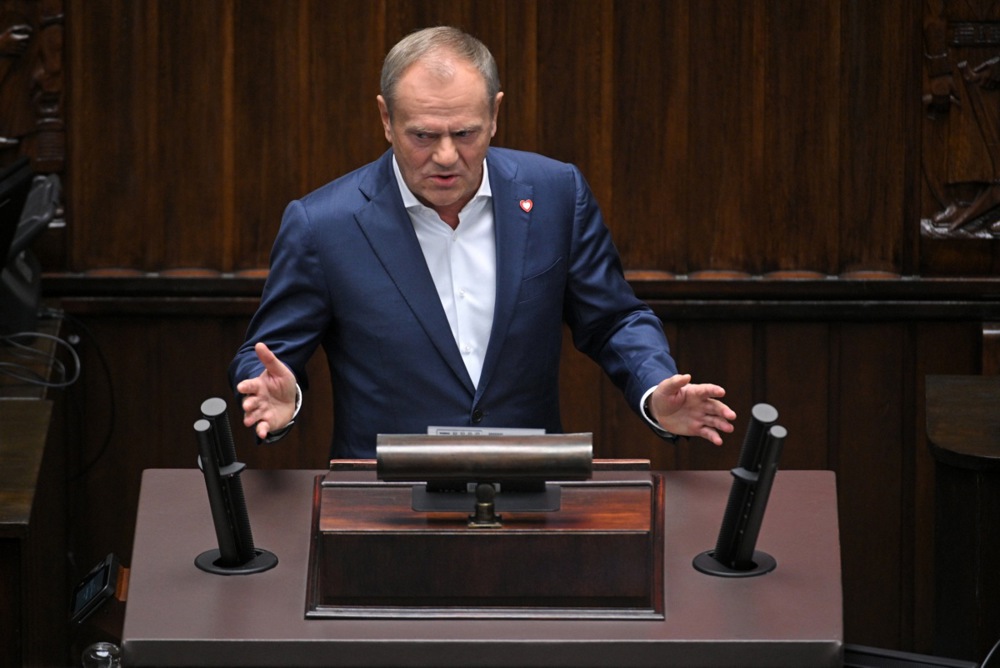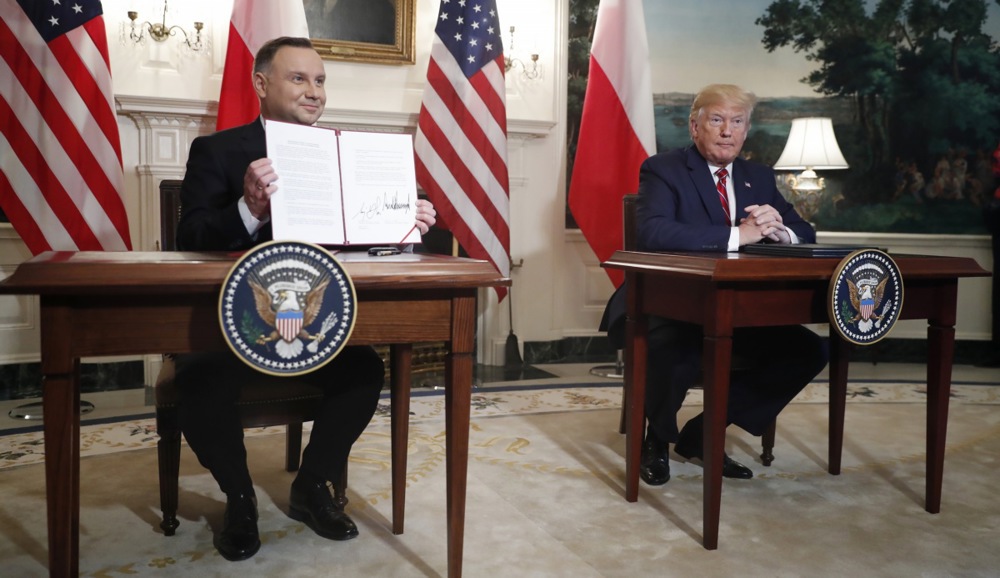Poland has signed a defence cooperation treaty with France that promised joint military exercises and increased military arms sales to Poland but did not provide any assurances of Poland coming underneath a French ‘nuclear umbrella’.
The treaty came as Poland, NATO’s highest defence spender as a percentage of GDP per capita, now sought to diversify its security partnerships beyond its traditional links with Washington.
It replaced an older Warsaw-Paris agreement from 1991, signed at the end of the Cold War.
The bilateral provisions in the treaty elevated Poland to the same level of cooperation France has so far offered to the UK, Germany, Italy, and Spain.
French President Emmanuel Macron hosted the signing ceremony after meeting with Polish prime minister Donald Tusk in Nancy on May 9.
This was the same day Russia celebrated its Victory Day in the Second World War, which elsewhere in Europe was marked on May 8.
The deal, as well as the date, was intended as a signal to Russia of growing European cooperation, and also one to Washington of Poland’s pivot away from defence dependence on the US.
The treaty also had important provisions on nuclear energy, education and cyber security.
It further “establishes a framework for both countries to assist each other in the event of acts of aggression against them” and was “one of the key pillars of Poland’s deepening cooperation with France in security guarantees”, said Tusk.
France would be able to “mobilise its military forces within 30 days in the event of an attack on Poland”, said Macron in his remarks.
In 1939, on the eve of the Second World War, Poland signed a defence treaty with France and the UK in an attempt to deter Nazi Germany. When Hitler invaded Poland, France and Britain declared war on Germany, but did not militarily assist Poland or launch an attack on the aggressor. Poland had to surrender after 30 days of fighting.
Tusk’s centre-left government has made relations with Germany and France and the resurrection of the Weimar triangle–Poland, Germany and France–a priority of its foreign policy.
The last centre-right PiS administration prioritised central European formats, such as the Visegrad four [Poland, Czechia, Slovakia and Hungary] and a wider Three Seas initiative consisting of all EU member states between the Baltic, Black, and Adriatic seas.
These were seen as a counter-balance to Franco-German hegemony–Poland’s two partners in the Weimar triangle.
In 2016, the PiS government cancelled a major defence contract to buy Caracal helicopters from France. Some Polish commentators believed the treaty between Tusk and Macron would aim to compensate France for that decision.
Stanisław Tyszka, MEP for the right-wing Confederation party, told government-controlled broadcaster Radio Trójka on May 10 “this treaty is largely a PR exercise since there is nothing about Poland being covered by the French nuclear umbrella”, something PiS-aligned president Andrzej Duda had called for in March.
According to portal Defence24 analyst Stanisław Walskowski, “to date, there have been no agreements or arrangements that cover such commitments, not even with the United Kingdom, another nuclear power”.
“In this area, France remains entirely independent and sovereign. Its nuclear doctrine focuses on deterrence rather than the active use of nuclear weapons” he added.
“The concept of nuclear sharing is not on the table for France. Nor is there any realistic possibility of a permanent deployment of French submarines in the Baltic Sea.”
According to Walskowski, “the French are uncomfortable with the term ‘nuclear umbrella’ because it implies that the one ‘holding it’ automatically becomes a target. Their perspective is more about providing support within a deterrence strategy and not about directly assuming risk on behalf of others.”





